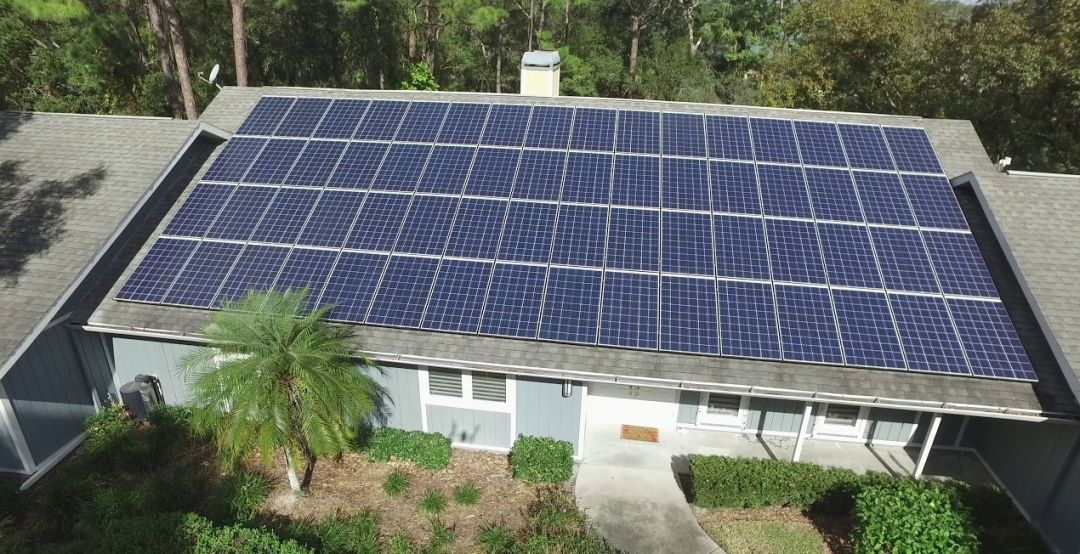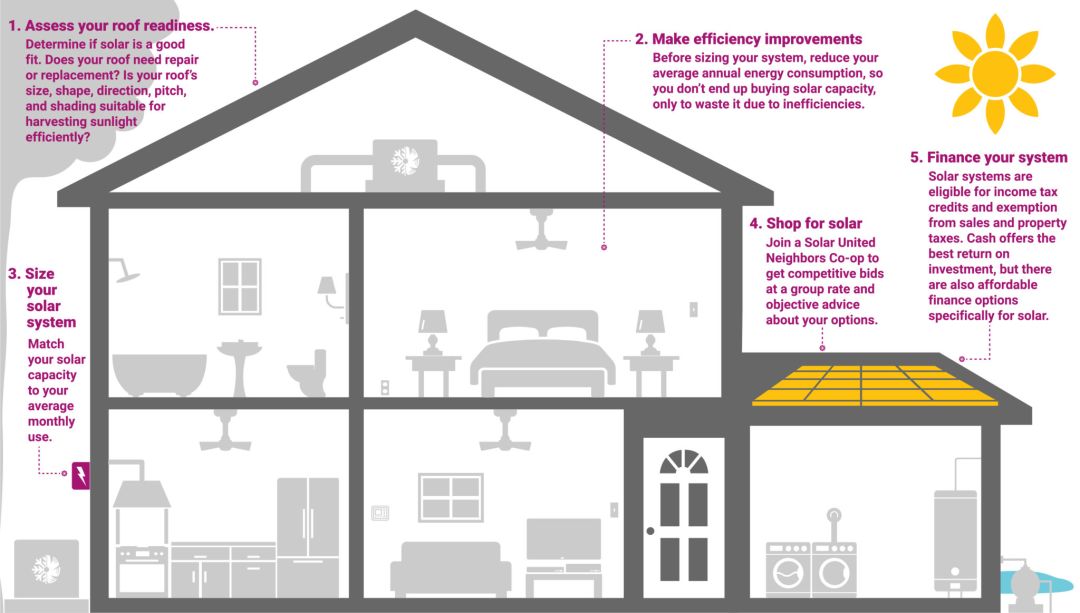How to Go Solar in the Sunshine State

Solar panels
There’s one way in which the Sunshine State isn't living up to its name, and that’s when it comes to solar energy: Less than 1 percent of Florida's total statewide energy comes from solar.
“We have a monopoly utility company–Florida Power & Light primarily, but Duke Energy, too–that sees distributed renewable energy as a threat to its long-term existence and is doing anything it can to stop it," says Bill Johnson, the founder of the Sarasota solar energy company Brilliant Harvest. "FPL is installing massive amounts of solar, but doesn’t want you to be able to install solar yourself."
But, according to Johnson, the cost of installing your own solar panels has gone down by roughly 70 percent since Brillian Harvest was launched in 2009, meaning there's never been a more affordable time to invest in rooftop solar for your home.
We recently spoke with Johnson and Lee-Hayes Byron, the director of Sarasota County's UF/IFAS Extension and Sustainability office, about some common questions people have about going solar in the Sunshine State.
What tax credits for solar are available?
The federal solar investment tax credit was recently extended through 2022. It allows homeowners to claim 26 percent of the cost of solar panels installed within the year on their tax returns.
For example, if a solar panel system costs $10,000 to install, you could earn $2,600 on your tax return through a refund or a reduction from the amount you owe. But, "the sooner the better," says Byron. "It used to be 30 percent, and it's been ratcheting down. It's expected to go down to 22 percent next year and possibly expire altogether. But oftentimes it's extended by Congress."
There is also a sales tax exemption. Under Florida’s Solar and CHP Sales Tax Exemption, Floridians are exempt from paying the state's 6 percent sales tax on solar panels.
Also, through net metering, utility customers who generate solar energy can sell renewable energy credits back to their power company. Those credits can be applied to energy bills within the next 12 months or paid out.
In addition, if you install something that increases home value, it can lead to an increase in your property taxes. But solar energy is exempt from that increase, says Byron.
What does it cost to install solar panels?
Small systems for a home can cost as little as $15,000 (or even less), but can go much much higher for a big home with solar and battery backup to go with it.
But it's tough to pin down an exact cost, says Johnson. For example, with a 2,000-square-foot home, with three residents, the same home can have different energy use depending on how the thermostats are set.
"Seventy-two degrees versus 78 is a massive difference in energy use," says Johnson. Other factors include "leaving lights on and doors open, the amount of attic insulation, HVAC efficiency, etc. However, most single-family homes can easily install enough solar to offset 100 percent of their energy use." Savings kick in right away while paybacks take roughly six to eight years.
One caveat: Florida Power & Light recently started charging a minimum $25 a month fee to its customers, even if you use no power at all.
"Even with those incentives, it's still a large upfront investment," says Byron. "The savings occur over time, so you have to be in a position to wait for those savings. If you don't have the full amount up front, financing options are out there."
Do I need a battery backup system?
"On a home system, the batteries will almost double the cost of going solar. That's for a modern, high-quality battery system. We do a lot of projects where we add battery later," Johnson says. "The battery is only needed if the grid goes down since they take the place of a backup generator."
What does maintenance look like?
Most panels come with a 25-year warranty. "After that, they may lose some of their power, but don't actually break," says Byron. You may also have to replace the inverter–the device that converts solar energy to usable electricity, which the electrical grid uses.

An infographic about rooftop solar.
Image: Courtesy Photo
How do I learn more about the benefits of going solar?
Check out an upcoming class on Wednesday, July 20, at the North Port Public Library, 13800 S. Tamiami Trail, North Port. Or email Byron at [email protected] to organize a group speaking engagement. Check out a past education session here.
These actionable tips are part of the Green Living Toolkit. Over the past year, the region’s sustainability experts at the Science and Environment Council of Southwest Florida have curated dozens of solutions for sustainable living. The Green Living Toolkit is an essential guide for people in Sarasota and Manatee counties interested in sustainable energy and food, waste recovery, water protection and nature—assembled all in one place.



